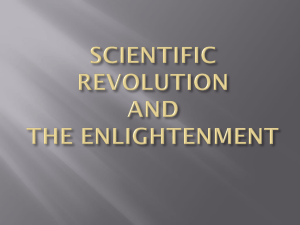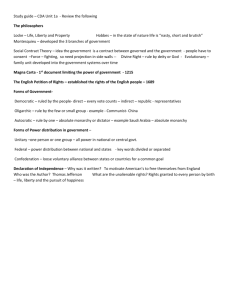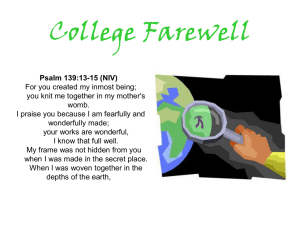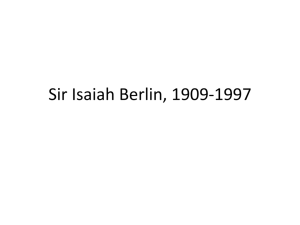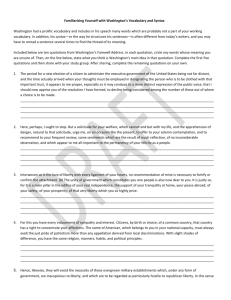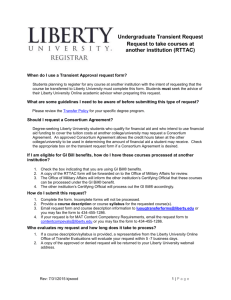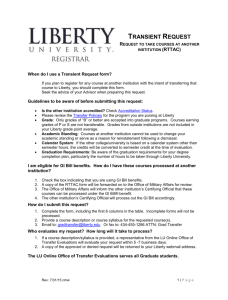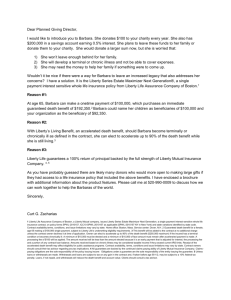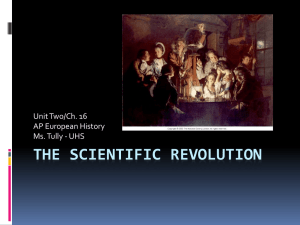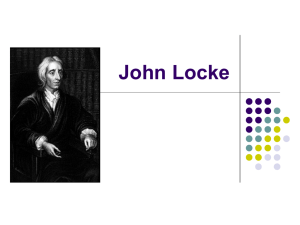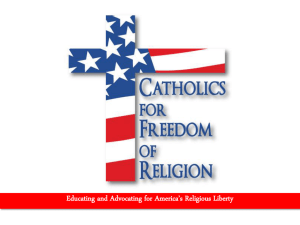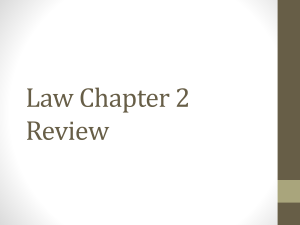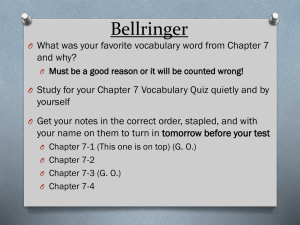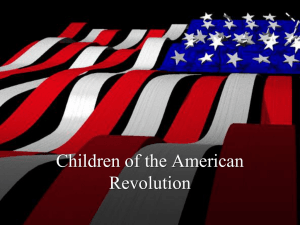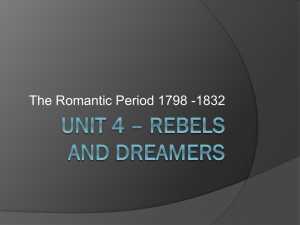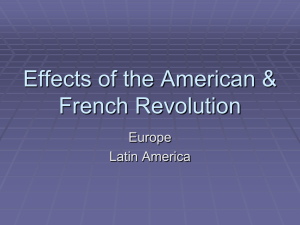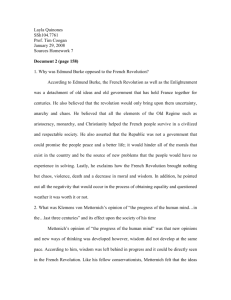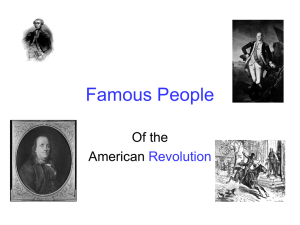II. The Enlightenment - University of South Alabama
advertisement
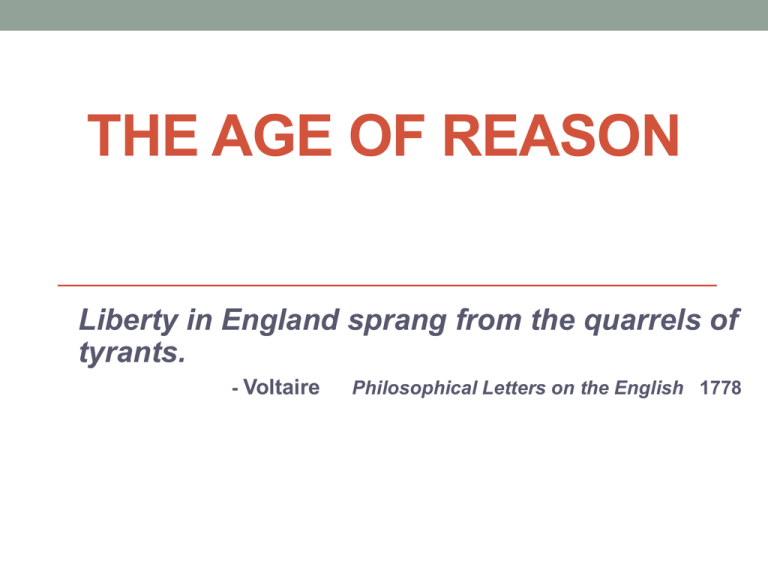
THE AGE OF REASON Liberty in England sprang from the quarrels of tyrants. - Voltaire Philosophical Letters on the English 1778 The Man Who Would Be King… …except that no one really wanted him James II r. 1685-88 Limits of Absolutism… origins of Liberalism & the Enlightenment Why did the Stuarts become so unpopular? We Are Family Henry VIII “Bloody Mary” r. 1553-58 Catholic v. Protestant Protestant v. Protestant Elizabeth I r. 1558-1603 Anglicans v. Puritans Roundheads in a Square World 1. Calvinists - anti-hierarchical - “middle” class Stuart Kings 1. James I (& VI) 1603-1625 “Divine Right” / Absolutism King James Bible (1611) 2. Charles I 1625-49 Short Parliament 1640 English Civil War 1642-1651 1. Culture Wars King v. Parliament Absolutism v. Magna Carta Nobility v. bourgeoisie Anglican (Catholic) v. Puritan 2. Oliver Cromwell Commonwealth (1648-60) Burgermeister Meisterburger Which brings us back to James 1. The Restoration Charles II James II 2. 3. 1685 Glorious Revolution 1688-89 Dual Monarchy 1688 - William & Mary 4. Checks & Balances Rise of Parliament Toleration Act 1688 Declaration of Rights 1689 Mad dogs and Englishmen Any single man must judge for himself whether circumstances warrant obedience or resistance to the commands of the civil magistrate; we are all qualified, entitled, and morally obliged to evaluate the conduct of our rulers. - John Locke, Second Treatise of Government, 1689 Remembering Hobbes In the wake of the English Revolution How do we justify revolution... without risking anarchy? John Locke Natural Law = Natural “Rights” Two Treatises of Government 1689 - natural rights An Essay Concerning Human Understanding 1690 - tabula rasa Liberalism Limited Government Personal Liberty Positive Humanism The Magna Carta 1215 *Sapere aude! Natural Rights Legitimacy non-inherent Society of secular/rational values *Dare to know! II. THE ENLIGHTENMENT My mind is my own church. - Thomas Paine A. What Is Enlightenment? 1. Freedom from the past… look forward, not back Reform of: political institutions prisons / criminal codes education economic development religious toleration 2. The Philosophes 1700s progress: - understanding “natural laws” - overcoming religious “ignorance” - social / political reform RATIONALISM, CRITICISM, ACTIVISM 3. Reason and Order Denis Diderot - Encyclopédie 1766 “All things must be examined, debated, investigated without exception and without regard for anyone’s feelings…” - Summarize & promote knowledge - “Natural Science” B. The German view 1. Immanuel Kant (1724-1804) Critique of Pure Reason 1781 Sapere aude the “subjective” C. Anti-authoritarian Voltaire - Philosophical Letters Concerning the English Nation 1734 - Talent vs. tradition Candide 1759 cynicism 2. David Hume 1711-1776 An Inquiry Concerning Human Understanding 1748 extreme skepticism “religion grows out of hope or fear” Voltaire, Candide D. Rational Government 1. Locke - Two Treatises… 2. Montesquieu - The Spirit of the Laws 1748 - govt. & civic virtue - checks / balances - enlightened despots E. Democratic rationalism 1. Jean-Jacques Rousseau The Social Contract 1763 - justice and order Sovereignty rests with the people “general will” 2. Thomas Jefferson Declaration of Independence 1776 Contract nationalism Right to Revolution F. Critique of Religion 1. Thomas Paine - religion as social control - radical politics Age of Reason 1794 “My own mind is my own church” Baron D’Holbach - “castles in the air” III. Empire of Reason The Spirit of ’76 The Great Paradox of American Slavery “How is it that we hear the loudest yelps for liberty from the drivers of Negroes?” - Dr. Samuel Johnson A. Extensive Revolution 1. Benign neglect B. Intensive Revolution 1. Rights of Englishmen - political / economic stress 2. Liberty or Equality? “The spirit of Liberty has spread where it was not intended to go…” C. The Counter-revolution 1. Constitutional Convention 1787 2. Compromise - slavery approved - the Bill of Rights James Madison The New Republic Experiment liberty = right of free, (white) men to control their economic, political destiny in lieu of social equality "How is it that we hear the loudest yelps for liberty from the drivers of Negroes?" - Samuel Johnson Paradox Liberty for some by denying it to others - radicalism contained Paradox… Absolute rulers promoted rationalism (science)… …but that same rationalism would be a source of antiAbsolutism.


